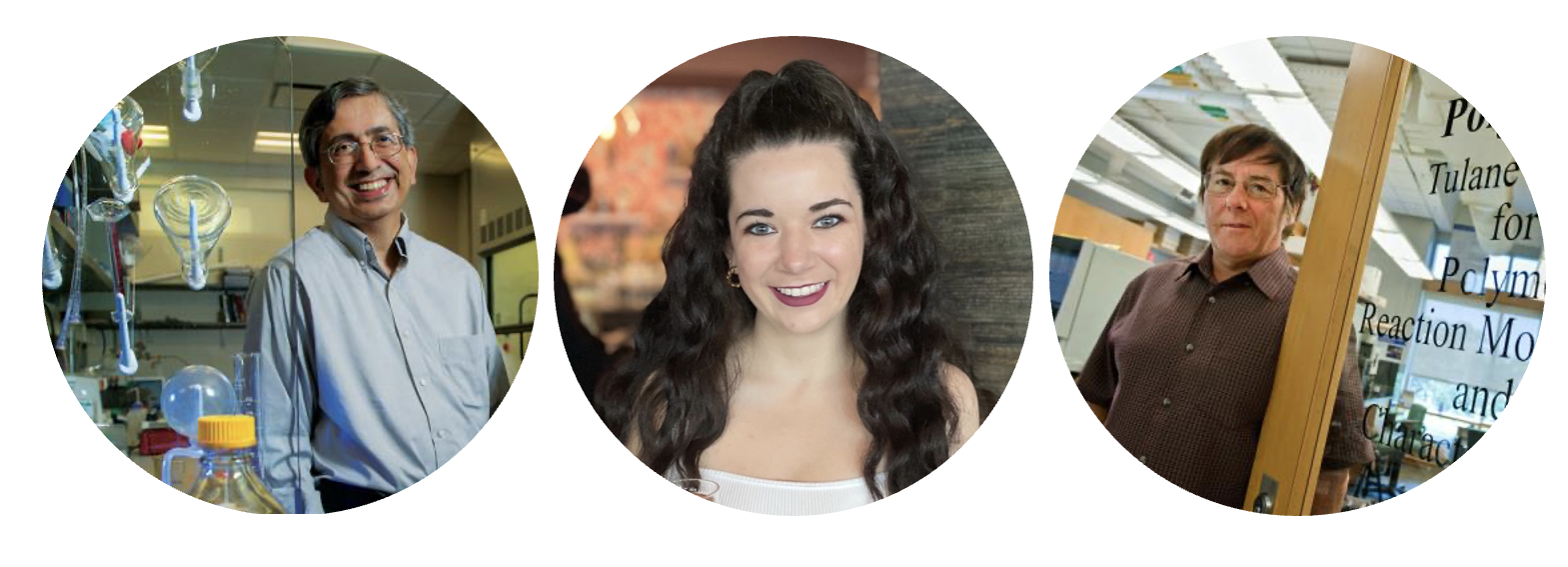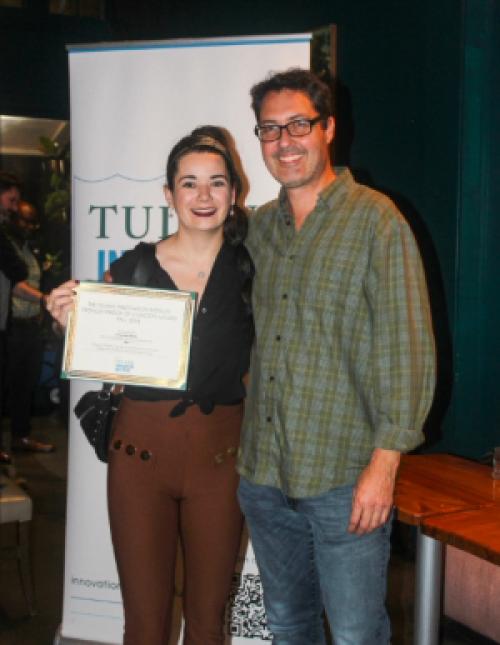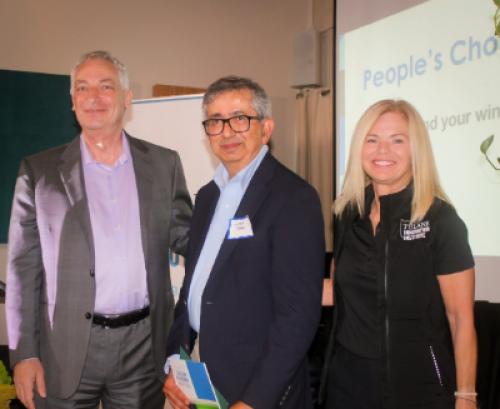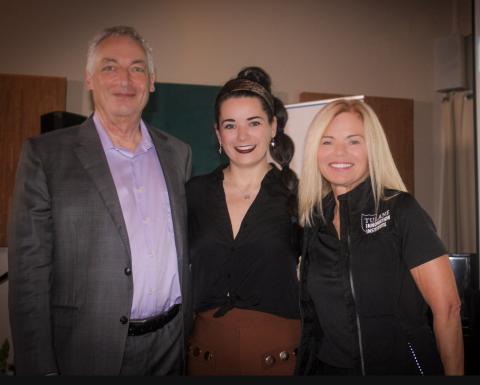Provost's Proof of Concept Fund Fall 2024 awards support research in health and environmental science
“Tulane was built to make the world a better place,” said Tulane University Provost Robin Forman at Open Season, a recent pitch competition event hosted by the Tulane Innovation Institute, where the recipients of the latest round of the Provost’s Proof of Concept (PPOC) fund were also announced.
The university has addressed pressing health challenges since its founding in 1834 to combat yellow fever and cholera in New Orleans. This legacy continues through initiatives like PPOC, which supports innovators in finding solutions to modern global issues.
In this fourth round of the PPOC fund, managed out of the Robert L. Priddy Innovation Lab at the Tulane Innovation Institute, three new recipients carried on Tulane’s mission of empowering our community to solve world problems. They were awarded $50,000 each for projects that could redefine healthcare and environmental science in the marketplace.
Since its launch in Spring 2022, the PPOC fund has steadily established itself as a launchpad for university innovators. Unlike traditional research grants, this initiative focuses on what occurs after discovery—transforming significant ideas into tangible solutions. With its latest round of funding, Tulane's vision of merging academia with entrepreneurship is becoming increasingly apparent.
PPOC allocates up to $150,000 to three selected projects that advance technology and examine its commercial viability each semester. With guidance from external experts in industry and technology commercialization, awardees refine their innovations and identify their target audience, the market, and their pathway to impact with the support of the Tulane Innovation Institute staff and the Technology Advancement Committee members.
The program has distributed more than $700,000 across four cycles, supporting projects that might otherwise stall in the “valley of death” between discovery and application.
This semester's winners exemplify the wide range of innovation occurring at Tulane.
Cuvette-Based Spectroscopic Devices for Biologic Medicines
Dr. Wayne Reed from the School of Science and Engineering and Curtis Jarand, Research Assistant Professor in the Department of Physics, are tackling an important issue in biopharmaceutical research: the stability of biologic medicines, which are created from living cells or organisms. He has developed a device that uses advanced spectroscopy to analyze how light interacts with materials. This device helps improve the formulation of these medicines, reducing waste and ensuring that they stay effective for a longer time.
Foams to Combat Harmful Algal Blooms
Dr. Vijay John, also from the School of Science and Engineering, is working to keep our waterways safe. He has created special foams containing algaecides, which kill harmful algae. These foams offer a practical way to eliminate toxic algal blooms, which can damage ecosystems and harm public health. His goal is to help restore balance to delicate water environments.
CRISPR-Cas12a Diagnostic for Cytomegalovirus
Chandler Monk, a Ph.D. candidate in bio innovation, uses CRISPR technology to create a quick and affordable test for detecting cytomegalovirus. This virus is a significant cause of congenital disabilities and health problems. Unlike traditional lab tests, her isothermal test can be used in clinics or remote locations, helping to make early treatment available to people worldwide.

Pictured from left to right, Vijay John, Chandler Monk, and Wayne Reed
Since the program's launch, Tulane's researchers have submitted over $3.2 million in funding requests and are enthusiastic about opportunities to commercialize their work. The technologies funded are expected to gain traction, as they will also be promoted to external industries to encourage partnerships and attract outside investments.
The Spring 2025 program cycle will run from December 16 to February 7. Applicants must be connected to the Tulane community (Faculty, Staff, Graduate Students, postdocs, Trainees). The technology should have an invention disclosure filed or prepared and a recognized commercial application. A completed application with an abstract, milestones, and budget must be submitted, typically for projects like prototyping, customer discovery, or market research. Funding requests between $5,000 to $50,000 will be considered. To learn more about the application process, watch this webinar.



